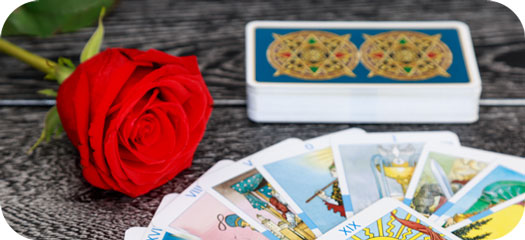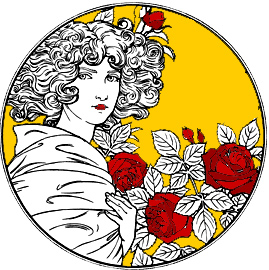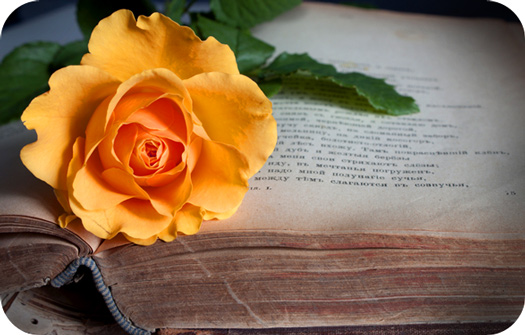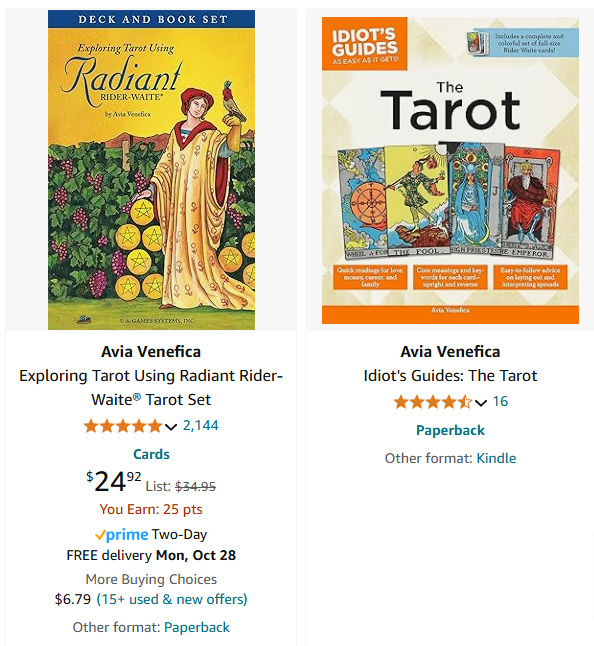Rose Symbolism in Tarot
Rose symbolism in the Tarot smells just as sweet as it does in non-mystical terms. There are few of us who are not enchanted by the elegance, sensuality, and unfolding glory of the rose. And therefore, the rose has been incorporated in mystic ideals as a powerful symbol with varied meanings.
On the surface, rose symbolism conveys attributes such as:
- Love
- Virtue
- Desire
- Clarity
- Beauty
- Purity
- Passion
- Balance
- Creation
- Progress
- Potential
- Direction
- Paradise
- Pleasure
- The Senses
- Spirituality
- Tranquility

These are just a few symbolic meanings for the Rose, the list is pretty much endless because the rose is a queen of garden of the soul. She champions our senses with her voluptuous beauty and heady fragrance. It’s no wonder the Rose is used in the Tarot – this flower fully engages our attention as well as all our senses.
The Rose is featured in several Tarot cards, namely, these Major Arcana cards:
We can see themes of balance in each of these Major Arcana cards.
In the Fool card of the Tarot, the white rose in the Fool’s left hand is a symbolic urging for purity and order. The left hand is symbolic of the conscious mind – the facet of our understanding that seeks order – sometimes even control. The Rose symbolism in the Fools left-hand says: “Get a grip on your thoughts – don’t let them grip you.” The white of the rose encourages purity and asks us to cleanse our mind for optimal results on our path.
Roses are often associated with magic, and so seeing its bright blossoms in the Magician card is fitting. Ancient orders, occult groups, theosophical branches of all kinds hailed the rose as a secret symbol of unfolding wisdom. With delicate prompting, the rose unwraps its luscious layers to reveal the heart-center of profound beauty. It’s the same with the human soul. Spiritual groups of all ages recognized this. In fact, the Rose is often considered the “lotus of the west” because it reminds the observer of the sweet smell of illumination. Indeed, in alchemy, the rose is symbolic of the spirit that grows within each of us when proper care and attention is applied.

In the Strength card, the rose symbolism speaks to me of balance. With all this delight and heady beauty, the Rose also comes supremely equipped for defense and protection. We can all understand the parable inherent in the Rose and its thorns. Where there is great loveliness, there also resides the potential for great ferocity. In the Strength card, the rose reminds us of the nature of duality, yin-yang, polarity – whatever you want to call it. There are twins to every aspect in life – the rose is a symbol of that universal rule.
Traditional imagery in the Death card indicates a white rose which hearkens back to themes of purity, clarity and transparency of intent. Jumbled up with the other symbolic edicts of the Death card, we can also interpret the presence of the rose as a conveyance of impermanence. “Nothing lasts forever” says the old adage. Rather than take that fatalistic stance, I like to consider things in cycles – to everything there is a season, and the rose in the Death card features the idea of transition – moving from one phase of life to another. Death is just a doorway, and the white rose prompts clear understanding about that entrance into new perception/existence.
I hope you have enjoyed these thoughts about rose symbolism in Tarot.
If you want more about rose symbolism, don’t miss my other pages below listed.

- Other Tarot Symbol Meaning
- Symbolic Meaning of Roses
- Rose Symbolism
- Rose Tattoo Symbolism
- Aspects of Reading the Tarot
- About the Tarot and Tarot Dictionary
- Tarot FAQ

